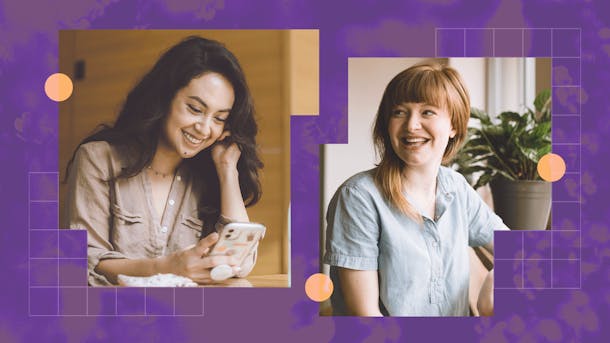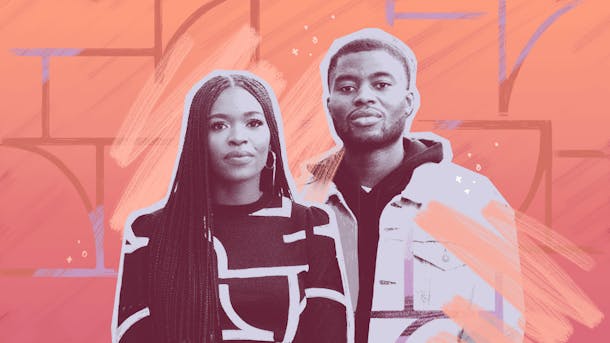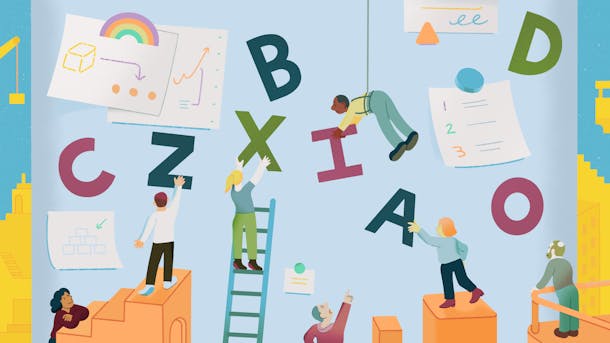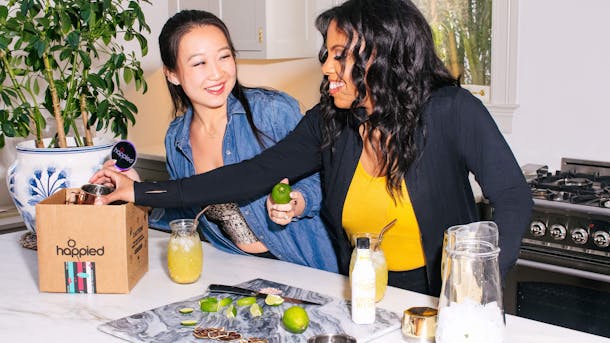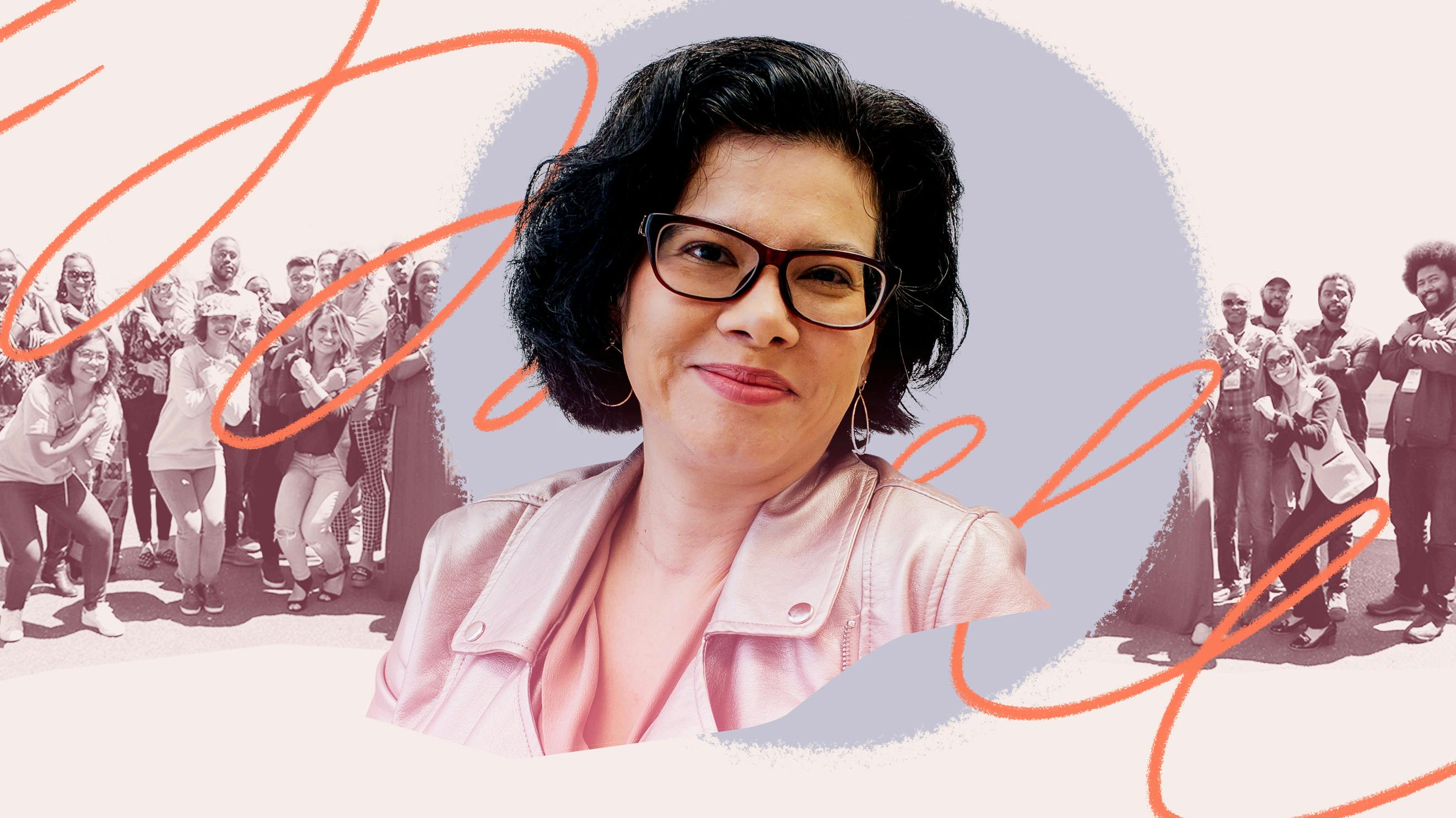
Feature Story
There's no going back to normal
A conversation with Deldelp Medina, executive director of Black & Brown Founders, on the pivots, changes, and lessons of the past year and a half.
Deldelp Medina’s résumé is deep and impressive — it spans tech and startups, nonprofits and philanthropy, media and advertising. But woven through a long list of experiences and accolades is a common thread, one she’s been zeroing in on for the past decade: creating stronger systems for equity.
In 2017, Deldelp teamed up with Aniyia Williams to launch Black & Brown Founders (BBF), an organization committed to creating equity through entrepreneurship for Black and Latinx communities. Through events and education, they empower founders to build tech and tech-enabled businesses with limited resources.
Despite being one of the fastest-growing demographics in tech, Black and Latinx founders receive only 2%-3% of the venture capital (VC) raised in the United States. Deldelp, Aniyia, and the BBF team are “rewriting the playbook” (you can listen to their podcast of the same name here) to support more entrepreneurs in getting from idea to profitability sooner, without having to rely on investor metrics and closed-off inner circles that often exclude historically marginalized founders.
In this candid conversation with the In the Works editorial team, Deldelp (the “p” is silent!) shares some of her personal story that helped get her to where she is, her transition from BBF’s first head of data and strategy into the executive director role, and the BBF team’s biggest pivots, changes, and lessons from the past year and a half.
She also explains why there’s no “going back to normal” in a post-pandemic world — and why that’s a good thing.
An intro to Deldelp, in her own words
First things first. How are you doing?
I’m up and down. I'm really glad that folks are getting vaccinated. I'm really glad that things are opening up. But the reality is that the pandemic has laid bare the inequities that lots of us saw for a long time, and those cracks that we knew were there have become chasms.
I am hopeful that folks are starting to realize this and that real structural change can happen, but I have moments of real sadness. I don't want to dismiss the fact that lots of us have lost people and lots of us are experiencing grief — and this is not a country that, culturally, likes to talk about grief or pain.
As a team at Black & Brown Founders, we have not been exempt from the realities of COVID. Some of us have gotten sick, have had family members get sick, and have had family members pass away. We're a women of color, immigrant-run organization. All of us are moms. One of us is a grandmother and great-grandmother. So the places and spaces that we've occupied have been complicated to navigate.
So, like I said, I've had my ups and downs. But I will say: Therapy is a great thing.
What led you to Black & Brown Founders? How did you start working with Aniyia and the rest of the Black & Brown Founders leadership team?
When I met Aniyia, I was working at Code2040 and running an entrepreneurship program where she was the entrepreneur in residence. She did the first Black & Brown Founders event as part of that residence, and she eventually said to me, “Hey, do you want to go do this thing with me? I want to hire you and I want to work together to keep this going.”
It's been such a great partnership. Our whole team is invested in doing better by others than others have done by us and better than systems have done by us.
We’re all very close and collaborative, and we’ve been able to make so much progress because — how should I put this? — we know how to argue. We all know how to disagree respectfully, find consensus, and come to an agreement. That’s a skill set we’ve developed together that I hope people pick up on and learn from.
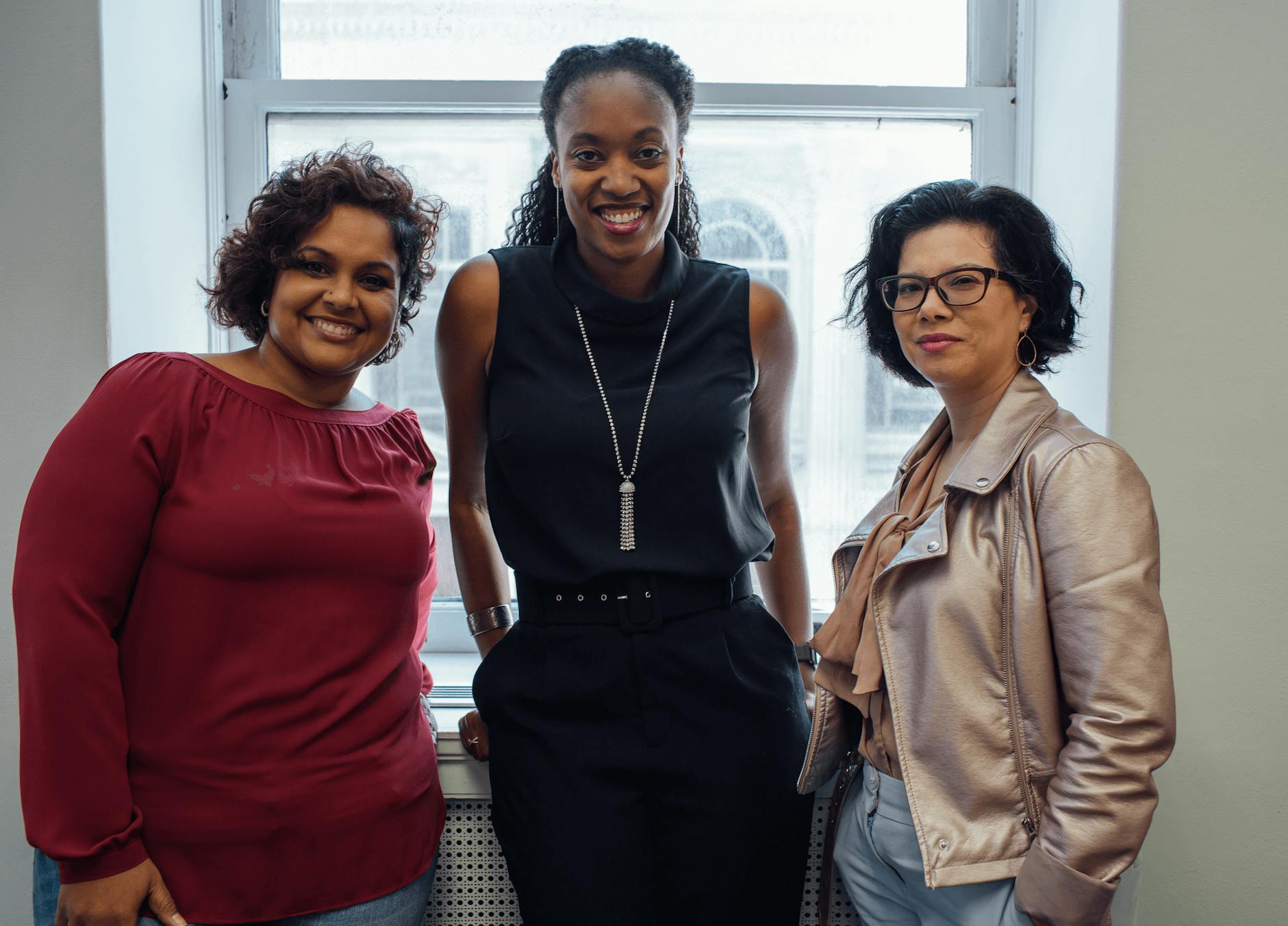
I would definitely say I got to where I am through failure — and by always learning. You can't be perfect in all circumstances and all circumstances aren't perfect for you, either. And sometimes the thing you thought you wanted is not actually the thing that would serve you best.
But everything I’ve done in my life was led by a sense of curiosity, because when you approach things with a sense of curiosity rather than a set of preconceived notions, you get a better outcome.
How have your own personal experiences impacted the work you do at BBF?
I’ve seen how everything from colorism to classism to the lack of access has impeded people in my family.
When I was a dot-commer earlier in my career, single and childless, and my coworkers were going up to Tahoe to go skiing — I was paying for my younger siblings’ summer camps. I was paying for family members’ needs because I earned a better salary than most people in my family. My ability to go up to Tahoe was nil.
It was a huge privilege for me to be able to support my family, but it does show you the difference. Those are the disparities we need to get rid of — because if Black and Latinx families do not do well in this country, this country does not do well. Period.
Our ability to have an ownership stake in this country is imperative for the economic future of this country. It’s not about one group doing better than another — there is plenty for all of us to do better together. That’s what we’re working toward at BBF.
Working across differences is also a skill set I learned from my family, and I didn't realize it was a skill set until I was much older. It's something that comes very naturally to me.
While I am a light-skinned Latina, I come from a family that ranges in color spectrum and background. I have lived with Black folks and Indigenous folks, LGBTQ people, and people with physical disabilities or mental illness my whole life. That was just my reality.
It taught me that the more you respect other people, the more you feel respected. Mutual respect is often missing in difficult but necessary conversations. Some folks lack the ability to say, “This is going to be a difficult conversation, but we're going to get through it.” And as long as we're all invested in having those conversations and working across differences, we can get to the other side.
Quick pivots and big changes in 2020
Given that BBF is centered on community and events, what quick pivots did you need to make when the pandemic started (and then stayed)? What else changed about BBF’s work and vision over the past year and a half?
When the pandemic first hit and the first shutdown happened, we were facing so much uncertainty. Financially, 2019 had already been a very difficult year for BBF. The majority of the work we did was on a volunteer basis. We couldn't even pay ourselves. We really had to consider: Is this work still worth doing? What does it mean for our personal bottom lines?
But we were hopeful it was going to be different in 2020. We had secured enough sponsorship for our work — and then suddenly the world shut down. We had to pivot and reconsider everything again.
First, we moved Chroma 2020, our five-day event series for Black and Latinx entrepreneurs, completely online. In June of 2020, we were set to launch the virtual version of the Bootstrapping Bootcamp — a 10-week, self-paced bootcamp for folks who want to create a tech business without relying on investors. And we wondered, should we even launch this? Are people even going to show up?
At that point, in March and April, the country was getting hit hard by COVID. The communities that we serve, which are Black and Latinx folks, were getting hit the hardest. Businesses were shutting down — mainly Black-owned businesses, but also Latinx-owned businesses. And our own family members were getting sick at the same time.
We ended up deciding to launch it, and we were so surprised by the reaction — we had 90 people apply right away. Sixty-seven were accepted to start our course, and now we’ve had several graduates and several success stories come from it.
Surprisingly, we also saw a shift in the geography of participants. We had people join from Africa and Latin America and from rural parts of the United States. We started working with people who don't have access to internet all the time — people who are taking calls from phones connected to cell phone towers that sometimes don't work because too many people are using them.
It's been so humbling to learn from these folks and to see the challenges they face — the same challenges that are inspiring them to create solutions through their businesses. They have financial constraints, have access to less capital, and they earn less. It takes a lot of guts for them to take that leap and say, “I want to create something.”
In your letter in the 2020 annual report, you wrote “our professional work and our identity is interconnected” and that “to receive recognition due to the deaths caused by injustice has been emotionally difficult to contend with.” Can you talk a little bit more about how America’s racial reckoning in response to police killings impacted you and the organization?
When Mr. Floyd and Ms. Taylor's murders happened in quick succession — that was really painful. But the other part that was painful was that I had a lot of phone calls (and I do mean a lot) in June and July of 2020 from people who were asking: What can we do?
Having those types of conversations — in the middle of a lockdown, in the middle of a painful situation, talking about race, talking about opportunity, talking about economic advancement — is difficult on its own. And then there were the circumstances under which we were having them.
It was very bittersweet that suddenly people were paying attention to our work because of the current situation, not because of the work we'd done and the reputation we'd built and the successes that we'd had. I still have a lot of mixed feelings about it, and that's OK. So often, we want to have a clean narrative, and that's not always going to happen.
I'm glad that people have recognized our work. I'm glad that folks have supported us and have enabled us to have a full team, to engage in this work, to hire people, and to get them paid. We've been able to work with amazing entrepreneurs all over the world as a result.
A closer look at BBF’s work today
BBF “prioritizes profitability over fundability” — what’s your philosophy on relying on venture capital?
I often say publicly: I'm not anti-VC, I'm pro-revenue. I have friends who are in VC, and I think what they do is great.
When BBF started out, part of the conversation was about whether our work would be to engage the VC world and help investing become more equitable. But we very quickly realized that's not us. That's not the work that we want to do, though we know it’s important and support others taking that on.
We asked ourselves, “What are the things that are broken right now that we most want to fix?”
And we realized that all of the BBF team members have been entrepreneurs or are currently entrepreneurs. We have a lot of experience around that, and what we really enjoy doing is working with entrepreneurs and supporting them directly. So that was what we decided to focus on — helping Black and Latinx entrepreneurs get from idea to revenue.
The cost to develop good technology has gotten much cheaper. When I tried founding my first tech company in 2014-2015, I needed a million dollars to create a minimum viable product (MVP). Today, I could build that same thing for maybe $20,000 using no-code and low-code solutions, and I wouldn’t even have to hire someone before testing an MVP.
You want to create a tech or tech-enabled business? Come and work with us. We will find ways to support you. That's what we do. And our level of specificity, especially working with folks who are just starting out, is really important. We ask lean startups: What is the one thing you are trying to do or solve? You can't boil the ocean. What is the one thing that you can do now? And how can you get paid?
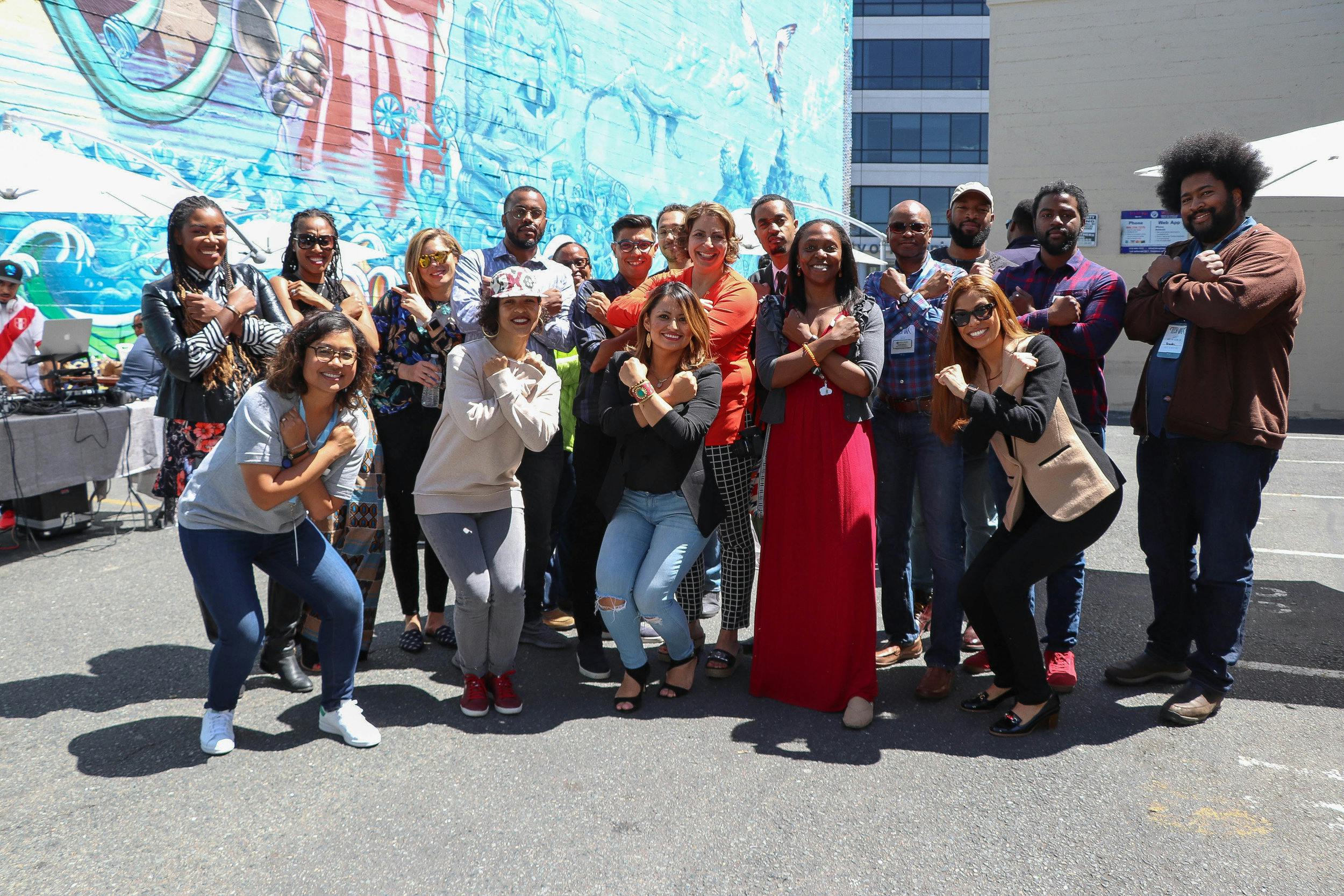

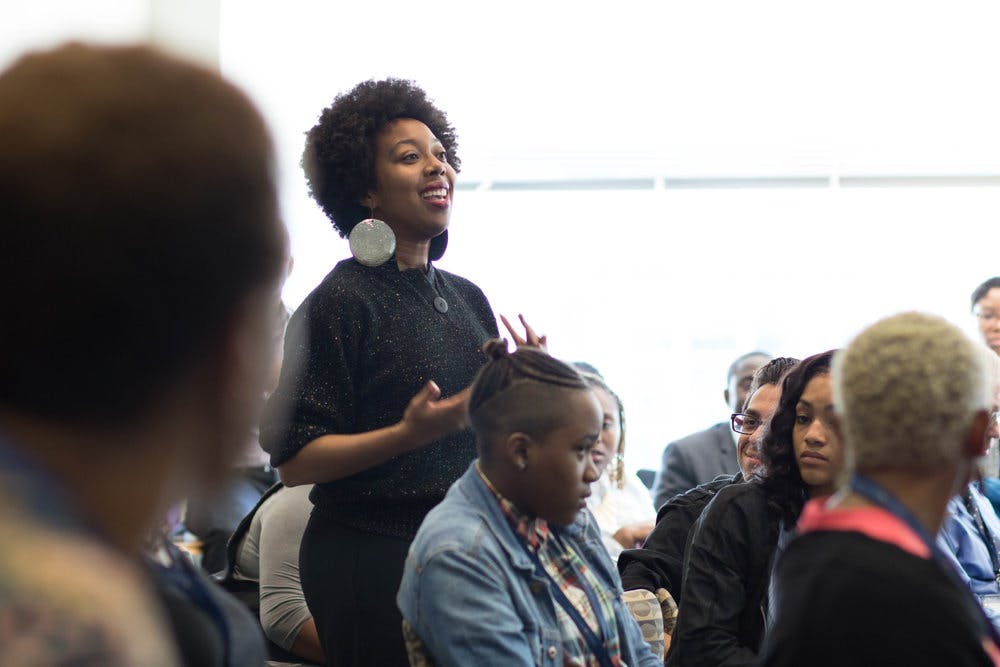
Where did the phrase “rewriting the playbook” come from?
The phrase first occurred to me when I was working with Aniyia and several other entrepreneurs, and we’d hear about their experiences at meetings with venture capitalists. The VCs would say, “You're doing great. When you meet this metric, come back and meet with me and I'll consider cutting your check.”
And then these entrepreneurs would cobble things together — figure it out in one way or another, not pay themselves, ask people for favors — to get to that metric and then hear, “Oh, that's great that you've managed to do this in six months, but unfortunately now what we're looking for is completely different.”
And I realized that so much of how things work today was made for a specific type of person, typically white men, and made for a specific moment in time and for a specific kind of culture. That reality is so different for the majority of us, yet the systems haven’t changed.
A big part of the chasm-making impact of the pandemic on Black and Latinx communities is that a lot of the systems we currently have in place are from the 1900s — from our educational system to the ways in which we work.
We’ve got to rewrite the playbook because none of this was created for us. Silicon Valley wasn't created for me to be successful in it. I could be a player. I could be an employee. I could be a contributor. But none of the mechanisms are created for me to find success, and the same goes for others in my family and community — that's just the reality.
The current entrepreneur playbook wasn’t taking into consideration a whole host of other factors that we need to be successful.
How has your former role as head of data and strategy informed your current role as executive director? What’s your biggest focus right now?
I've continued the theme of using data to inform everything that we do. The data piece takes time and energy — it's something I really enjoy, and we've seen success because of it. We live in an increasingly data-driven world, but it's not unusual for our lived experiences as Black and Latinx individuals to not even be considered or have data around them. That’s why everything we do at BBF has has data attached to it.
A big thing I’ve been focusing on and learning recently in this role is that asking better questions of the people we serve and gaining more understanding of their current situations will lead to better programming.
For example, one of our entrepreneurs just sent me a message saying that he’s pausing on the BBF program. He said, “I actually run an ice cream business, it's been busy over the summer, and things are opening up in my region. I gotta get that going.”
And I said to him, “That’s great. I know you want to eventually create this platform you’ve been working on, but for right now you need to go out and make money.” So my question is, how can we create better programming that fits and serves the realities our participants are facing in their everyday lives?
People in our BBF community are highly ambitious, and that ambition has to be commensurate with the amount of support that they get. As a society, we've been taught that people with ambition are self-driving and that there's somehow no other ecosystem or group of people that support them, but that's not true.
People enable other people to be ambitious and succeed with their ambitions. And that so often doesn't happen for Black and Latinx folks. We don't have the same networks of support.
That’s such a huge part of the work that we're doing right now in trying to create those support networks — so that if you have an ambition and you're willing to put the time, energy, and money into the thing you want to build, we can be there to help support you in that.
Where we go from here (it’s not “back to normal”)
We’re well into 2021 now, and people are getting vaccinated. There’s a lot of talk about trying to “go back to normal.” But that still isn’t really an option for most people and business owners. What does the notion of “going back to normal” mean for BBF’s work and community?
There is no going back to normal. Normal wasn't working for the majority of us, and “normal” as a concept is not healthy. There is no one, specific way of being in the world. We have a lot of rethinking to do.
We used to talk about the “future of work” — and now I call it the “now of work.” The pandemic has shown us exactly how work looks right now. Women have left the workplace in huge numbers. Millionaires and billionaires are accumulating even more of the wealth while others are losing their jobs.
The question I’ve asked myself over and over, which I think all the leaders in our BBF community have asked themselves, is: What can I do? What can I take leadership over in this moment?
So often, losses in wealth and opportunities are felt privately and not talked about publicly.
As Aniyia said to me recently, all social contracts have been rewritten. They need to be rewritten, in particular, when it comes to how our systems impact Black and Latinx folks.
There is no going back to normal. Normal wasn't working for the majority of us, and “normal” as a concept is not healthy.
From your perspective, what’s needed in order for us to make a collective pivot — to build equity and create more opportunity for Black and Latinx entrepreneurs?
Two things are needed: bravery is one, and an iterative approach is the other. This isn't a one-and-done situation. This is going to be a lifelong project for lots of us, because it has to be. This isn't about the year 2020 or the pandemic. This is about the rest of our lives and committing ourselves to doing the work.
Having conversations about differences and the racialized structures in which we live is going to be very uncomfortable, but I highly suggest that we all do it. It is a journey — and it won’t be perfect. But that’s okay. In fact, the idea of perfection is a white supremacist construct.
It’s also about iterating, in terms of social progress, but also in terms of our industry in particular. When you look at the first version of Twitter, it was terrible. The first version of something is always terrible. That’s why our iterative process is so important. We need to build. Measure. Learn. If we’re always building something new together, we’re always learning and getting better.
Be brave, be bold, and know that you're going to make mistakes. If you really believe that we need a better world and you would like to be a part of it, then you're going to have to put in the work.
